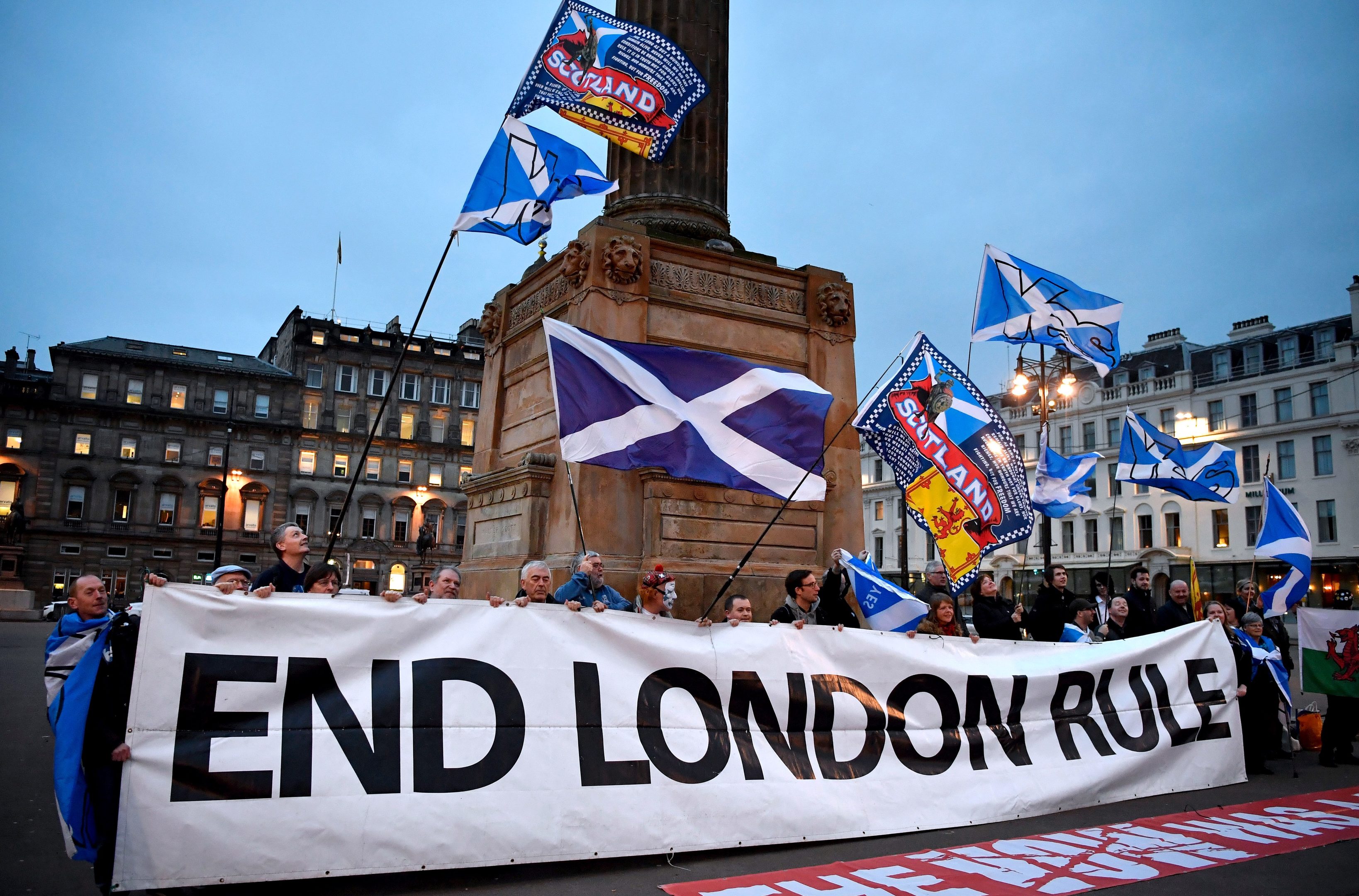One thing the many contenders for the Tory leadership contest had in common was a determination to rule out a second independence referendum in Scotland.
Like Theresa May, still prime minister, they argued that the Scottish constitutional question had been settled in a democratic, and legal, ballot in 2014.
There has been nothing since to indicate that a majority of Scots regretted this decision and were lobbying for a re-run.
The final two candidates, Boris Johnson and Jeremy Hunt, have both vowed to safeguard the union. Johnson said voters were told they were making a once-in-a-generation choice less than five years ago and “we should stick to that promise”.
He did not go further and definitively rule out transferring the necessary powers to Scotland should he become PM, but that is nothing to raise Nationalist hopes.
Hunt was unequivocal, saying at the leadership hustings in Perth last week: “I will engage fully, responsibly and generously on everything that helps Scotland move forward, but I will not engage with (Nicola Sturgeon) on the issue of independence, which will take Scotland backwards.”
So, whoever wins this race, the position of the UK Government is clear – the people of Scotland should not be forced into another divisive campaign over separation.
But these reassurances should not make Scottish Unionists sleep more easily, for senior secessionists have now issued a new threat – they will pursue independence without the formality of a plebiscite.
Angus MacNeil, the Western Isles MP, and Christopher McEleny, the SNP group leader of Inverclyde Council, have called for a Plan B if Westminster refuses a Section 30 order to enable a referendum.
They claim an SNP victory, either in Scottish elections, due to be held in 2021, or a general election, would be enough of a mandate for Scotland to begin proceedings to break away from the rest of the UK without the say so of the electorate.
MacNeil and McEleny have drawn up a resolution which they will present to their party’s conference in October.
Although Sturgeon has laid out a timetable for Indyref2, which she would like to see taking place in the second half of next year, she has never gone as far as advocating the extreme measure of UDI (unilateral declaration of independence).
Her attempts to fast-track the independence debate in the wake of Brexit, which Scotland opposed, have come to nothing, and she has been under pressure from activists to set a more aggressive agenda.
The fact that two of her colleagues have now done this on her behalf undermines her authority.
But that is the least of Scotland’s problems. McEleny said: “We need a way to ensure that the democratic mandate of Scotland is respected.”
This is a chilling phrase. Scots have grown accustomed to the Nationalists’ ploy of deliberately conflating Scottish interests with their own.
Sturgeon repeatedly insists she speaks for the people of Scotland when she spouts Nationalist propaganda.
Aggravating though this is for the majority of us in this country who don’t identify as separatists, it is politics and it is what we have come to expect from a shrill camp that has never come to terms with the defeat of its dream in 2014.
But MacNeil and McEleny go too far. Their blueprint empowers an SNP government to open negotiations with the UK even if the result of the next Scottish election mirrors that of 2016.
The SNP lost its majority then, but continued to hang on to power thanks to the backing of six independence-supporting Green MSPs.
In the 2017 snap general election, the party lost a third of its seats, but still has the most Scottish MPs, with the union vote split between three opposition parties.
The MacNeil and McEleny gamut has been mooted previously by another SNP MP, Joanna Cherry, who last year suggested the party could achieve independence by a “democratic event” such as a general election. And veteran Nationalist and former health minister Alec Neil urged Sturgeon earlier this year to declare UDI should there be a Holyrood majority in 2021.
The democratic principle has long been discarded by separatist desperados who think they are modelling themselves on the Catalans but whose tactics evoke more sinister movements.
Having lost what little momentum they had in 2014, the SNP should have accepted the will of Scotland to maintain the status quo.
They were handed an electoral triumph in the 2015 general election, after losing the referendum, by Scottish voters sophisticated enough to distinguish between believing in the SNP as a political party, while rejecting its central premise of independence.
If those same voters are warned that their vote, either in 2021 or whenever a general election is next held, will be used for constitutional and not parliamentary ends, the SNP may get a fatal hammering. Here’s hoping.
